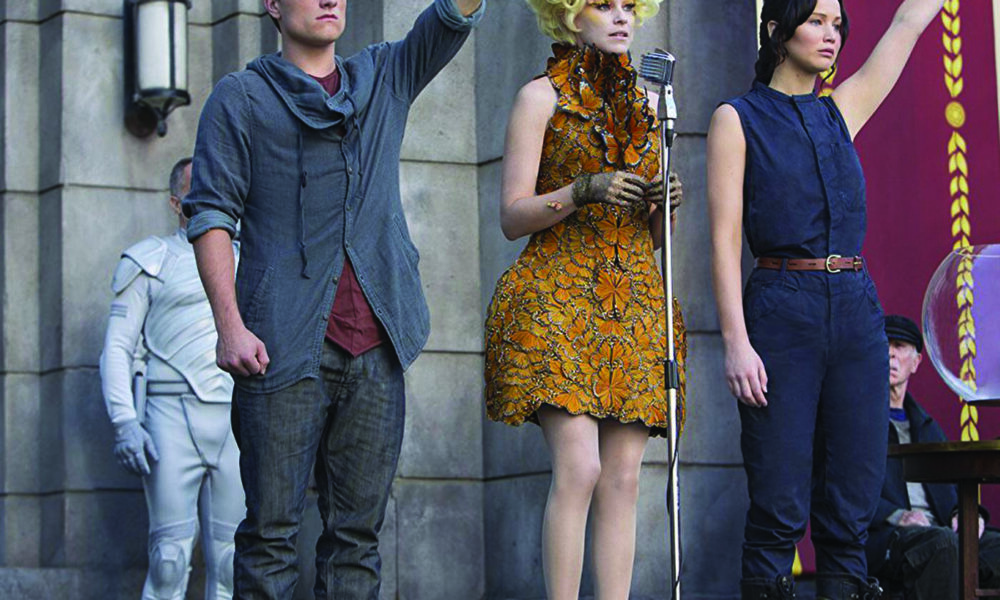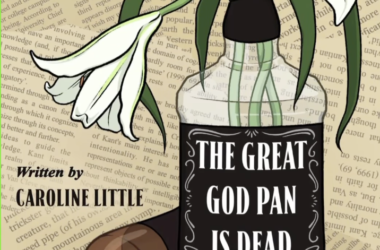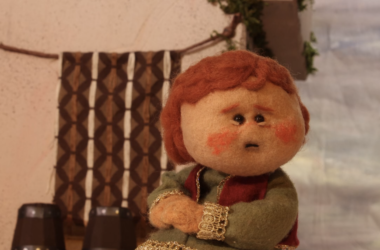When many think of the young adult (YA) dystopian genre, both in literature and in film, The Hunger Games immediately comes to mind as one of the defining trilogies of the category. The Hunger Games hit the big screen 10 years ago and made nearly $700 million in worldwide sales. In the late 2000s and early 2010s, the YA dystopian genre reached peak popularity, and as a young tween in its target demographic, I remember just how captivated my friends and I were with tales of teenagers sparking revolution.
Books like The Hunger Games caught our attention for more than just their flashy book covers. For one, the protagonists were young kids and teenagers, just like us. But they had the power, through ability or circumstance, to change the world. As young people who just wanted to find a place where we fit in, we looked up to these characters who played vital roles, who were heroes that saved society from injustice. The characters were brave in their dangerous fictional worlds: While Katniss Everdeen competed in a deadly competition in the Hunger Games, Tris from Divergent jumped out of trains for thrills, and Thomas from The Maze Runner sprinted for his life through a murderous maze. Each protagonist found themselves in life and death scenarios, which kept young readers and adults alike flipping the pages in suspense.
Despite the surge in YA dystopian novels during the 2010s, the genre is nothing new. Novels such as Aldous Huxley’s Brave New World (1931), George Orwell’s 1984 (1949), Ray Bradbury’s Fahrenheit 451 (1953), and Margaret Atwood’s The Handmaid’s Tale (1985) laid the groundwork for this 21st-century fad. All of these stories follow protagonists navigating oppressive systems that use systems such as surveillance and social pressures to force conformity.
Unfortunately, many YA dystopian books that capitalized on the success of their more thoughtful predecessors dumbed down their dystopian elements to attract young readers. This surface-level writing in terms of world, plot, and character-building caused the genre to lose what little critical respect it had. Series such as Divergent copied the idea of splitting society into groups called “factions” from The Hunger Games’“districts” and Harry Potter’s “houses,” where characters belong to a group based on a single value or skill. Main character Tris leaves her family’s faction, Abnegation, to enlist in the exciting yet dangerous faction, Dauntless. Unlike The Hunger Games, where Katniss’ involvement with war is a result of self-sacrifice and need for rebellion, Tris has little motivation or character development throughout the series. The Hunger Games challenges young people to question the systematic oppression around in a way that realistically explores corruption and injustice – a domain these copycat novels tend to gloss over.
The YA dystopian genre now seems less far-fetched, with young people becoming more politically active in the face of real threats of climate change, tyrannical politicians, and global conflict. These activists are applying the original YA dystopian message—that young people have power to change the world they live in. Novels have always incorporated political messages, whether to destigmatize mental illness, challenge racial biases, give voice to 2SLGBTQIA+ characters, and more. Nonetheless, YA dystopian literature so clearly reflects social oppressions in the world that it becomes difficult to enjoy the “fiction” as we could when we were younger and more ignorant. Fantasy no longer sugarcoats these books; the similarities between fact and fiction are more obvious.
The YA dystopia genre may be less popular than it was 10 years ago, but it truly shaped what my generation was reading in adolescence. Now older, we can no longer see The Hunger Games as fantasy—oppressions endorsed or even enacted by governments around the world are an inherent part of the world we live in. Yet young adults can still look to literary figures, like Katniss, as inspiration in the fight against injustice in our world.









